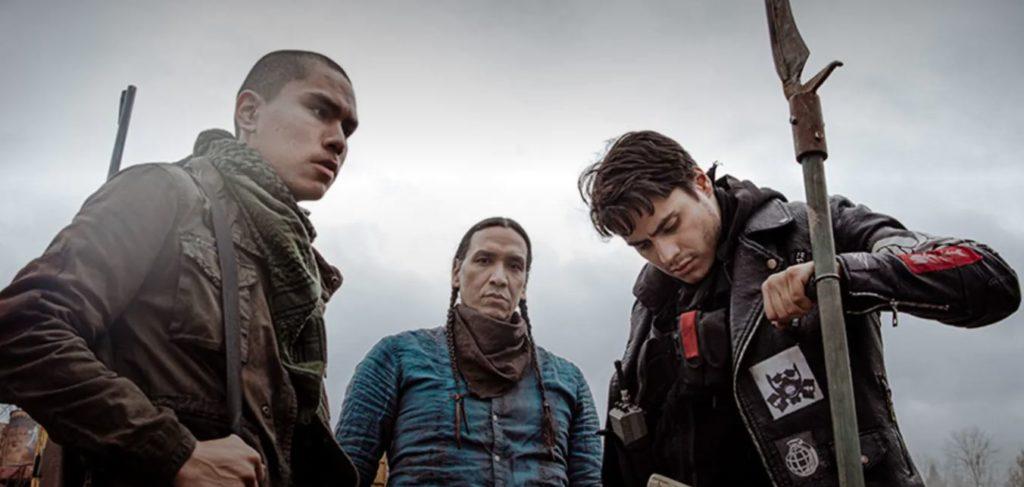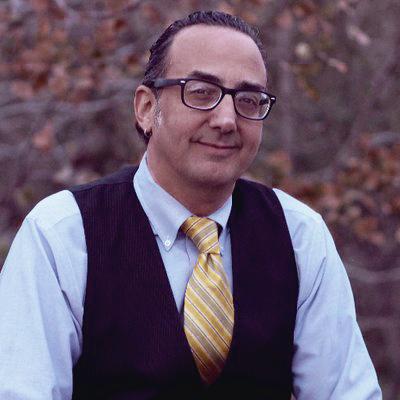Barnaby was well-known for two of his iconic feature films in his too-short film career, ‘Rhymes with Young Ghouls’ and the Indigenous Zombie thriller ‘Blood Quantum’
Mi’kmaw filmmaker Jeff Barnaby, known for his ‘in your face’ feature films, ‘Rhymes with Young Ghouls’ and ‘Blood Quantum’ has died at the age of 46 after a year-long battle with cancer.
Within a few hours of the announcement of Barnaby’s death, actors he had worked with, as well as film industry organizations, had already posted to social media their grief and surprise at the news.
Devery Jacobs, the Mohawk actress who played a feature role in both of his films, posted on Twitter, “How I’ll miss you, @tripgore” (His Twitter handle.)
Jacobs continued, “Beautifully stubborn ’til the very end, Jeff Barnaby was bold in his life and his work. He bore a sensitivity, poignancy and depth within him, that translated through his films and resonated with audiences Indigenous and non-Native alike.”
A personal note of my reviews and interviews with Jeff Barnaby
In April and May of 2020, at the height of the COVID pandemic, I was thrilled that Barnaby released a Zombie movie titled Blood Quantum, wherein the Native people were immune. I gave the film a well-deserved 10 out of 10 as a Rotten Tomatoes film critic and even coordinated an after-watch party with Shudder TV.
You can watch the interview with several of the actors, as well as Jeff Barnaby, here.
I was extremely excited to see two subjects I loved together Native people and Zombies. And the Zombies couldn’t infect Indigenous people? What an amazing concept.

I was thrilled to see what else Jeff Barnaby could have created.
His death is a devastating loss. #RIPJeffBarnaby
Posts on social media
Here are just a few of the messages that are outpouring on social media.
Fangoria
Critic Isaac Feldberg
Toronto Independent Film Festival (TIFF) CEO Cameron Bailey
TIFF
Jason Gorber (Editor and Critic)
Shudder
The press announcement of Jeff Barnaby’s passing
Earlier today, Barry hertz, the Deputy Arts Editor/Film Editor, of the Globe and Mail posted the press announcement on Twitter.
The post reads as follows:
October 13, 2022 Montreal, Quebec – Acclaimed filmmaker Jeff Barnaby passed away after a year-long battle with cancer. Jeff was born and raised on the Mi’gmaq community of Listuguj. He spent his adult life living in Montreal, Quebec and is survived by his wife, Sarah Del Seronde and son, Miles. He was 46.
Jeff Barnaby redefined Indigenous cinema by injecting elements of magic realism, body horror, and sci-fi into Indigenous stories. He would never have called his films Indigenous Futurism, but his films invented the genre. George Stroumboulopoulos once called Jeff’s work “Bare Knuckle Cinema” as apt a description if there ever was one.
Jeff Barnaby’s passion for film was ignited from the time he was a child, relishing in horror and sci-fi films he watched with his brothers. Early influences ranged from David Cronenberg’s Rabid to films Conan the Barbarian, Bladerunner, Predator, and the Quebecois classic Leolo. Jeff’s gift for filmmaking solidified when he moved to Montreal to attend Dawson College and later Concordia University’s Cinema Program. From the beginning, Jeff’s vision and his groundbreaking stories were rooted in his experience growing up in Gespe’gewa’gi.
Jeff strived to highlight the cosmology of the Mi’gmaq language in his body of work. He recently wrote, “In Mi’gmaq, the word for ancestor and parent is the same thing, ungi’gu/. Your language, your land, and your elders are time capsules as much as they are cultural touchstones. As an indigenous person, you exist to move your culture forward from the past into the present to ensure its survival for the future. And whereas the inherited trauma can inform the theme, experiencing time as singularity affects structure, the Indigenous narrative exists all at once because we are living, breathing history.”
Jeff was a demanding craftsman. He worked with Quebec’s most talented crews in the production of his films. He repeatedly worked with several close friends and collaborators, including producer John Christou, Sound Designer Joe Barrucco, Cinematographer Michel St Martin, Make-up FX Maestro Erik Gosselin, and a core group of indigenous actors including Kawennahere DeveryJacobs, Glen Gould, Brandon Oakes, Michael Greyeyes and Elle-Maija Tailfeathers.
Jeff loved music and created the soundtracks for his films. He’d often compose on the fly, playing guitars, banjos, synths, drums and whatever instrument may have been required. As a blues fan, Jeff had a love for the likes of Junior Kimbrough and RL Burnside and tried to include their work in his films whenever he could.
Jeff could at times, be seen as an outsider and yet was supported in his work because of his mastery. He was uncompromising in his views on Indigenous identity, Indigenous storytelling and authenticity. He never hesitated or backed down from his point of view and remained authentic throughout his career. He valued honesty.
Jeff was recently quoted in a Canadian Press interview as saying, “It’s not everybody that can say, ‘I’ve only worked on my own material, and I’ve only committed myself to Indigenous storytellers or Indigenous stories.’ I can say that.”
Jeff wrote, directed, and edited all his films, starting with his first short film From Cherry English (2004), which premiered at the Sundance Film Festival, followed by The Colony (2007), which premiered at TlFF and was later selected as one of TlFF’s Top Ten. File Under Miscellaneous (2010) won several prizes, including the Best Indigenous Language Production Jury prize from lmagineNative Film+ Media Arts Festival and Etlinisigu’niet (Bleed Down) was made for the National Film Board of Canada in 2015.
In his debut feature film, the visionary Rhymes for Young Ghouls (2013), Jeff provided a scathing indictment of Canada’s Residential School system, wrapped in a revenge story set on the fictional Red Crow reserve. Considered hyperbolic at the time with its depictions of mass graves at residential schools, the film opened new avenues for Indigenous cinema and inspired a new generation of Indigenous filmmakers. Notably, the film launched the career of Kawennahere Devery Jacobs (Reservation Dogs, Echo), who remained one of Jeff’s dear friends.
Rhymes for Young Ghouls was nominated and won multiple awards, including Best Canadian First Feature at VIFF, and the Vancouver Film Critics Best Canadian Director Award.
Norman Jewison received the Toronto Film Critics Association Clyde Gilmour Award and paid it forward to Jeff based on his success with Rhymes for Young Ghouls in 2013.
Jeff’s sophomore feature film, Blood Quantum (2019), is a raucous Zombie film and critique of colonialism where Indigenous peoples are immune to the zombie plague. It was nominated for 10 Canadian Screen Awards and won 6, as well as being nominated for 5 IRIS awards.
The film was originally conceived in 2007, but it would take 12 years to put the project together. The award-winning film was inspired by horror masters like John Carpenter and George Romero and, most importantly, by Alanis Obomoswain’s Incident at Restigouche, which was shot on Jeff’s home reserve when he was 4 years old.
It was a film that touched him deeply. Due to COVID-19, the theatrical release of Blood Quantum was forced to pivot to a streaming release. The film was sold to over 30 territories around the world, and Jeff took great pride in knowing that his people and his language were represented in such far-off countries as Japan, Germany, France, Italy, Laos, and South Korea.

Vincent Schilling, Akwesasne Mohawk, is the founder and editor of Native Viewpoint. With nearly 20 years of experience as a Native journalist and former member of the White House Press Pool, Vincent works to uplift underrepresented voices in the world of media and beyond. Follow Vincent on YouTube.com/VinceSchilling, on Twitter at @VinceSchilling or on any other of his social media accounts by clicking on any of the icons below.
Support Native Viewpoint a Native multimedia website, by clicking here.